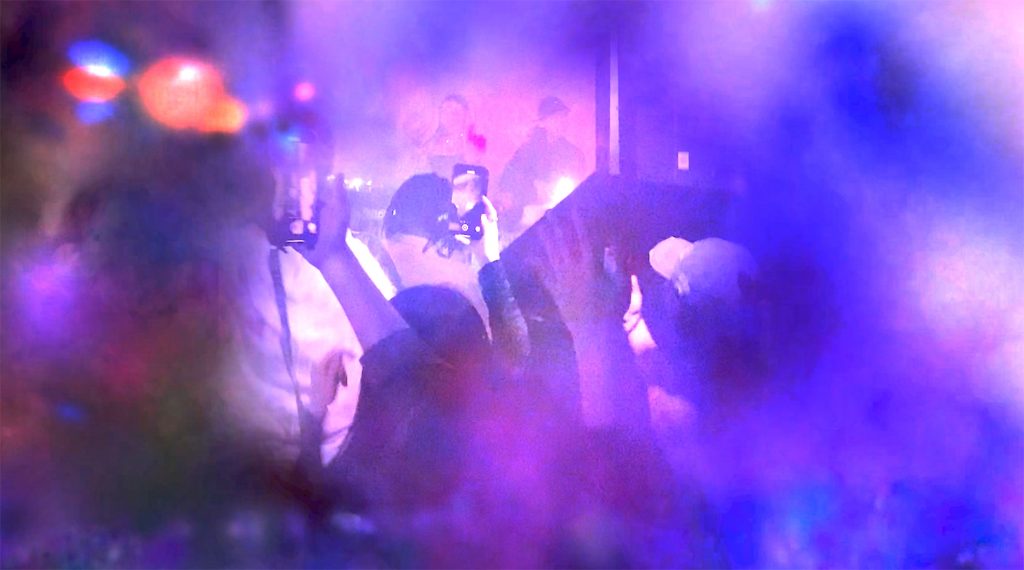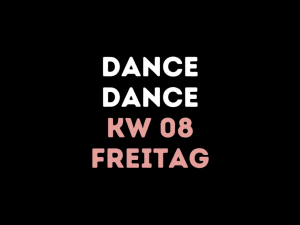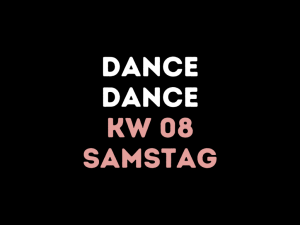
We have been following the Balance Club/Culture Festival from the very beginning – so we are all the more delighted to be hosting a multimedia essay by Whitney Wei and Yi Li for the digital festival launch of the 2024 edition.
This year’s Balance Club/Culture Festival will take place from November 1 to 3, 2024 – we had already reported on it in more detail. To kick things off, we are publishing an exciting essay by Whitney Wei on the question of how progressive the electronic music scene actually still is. As the former editor-in-chief of Resident Advisor and Telekom Electronic Beats, she has published numerous articles on the club scene, electronic music and artists in media such as The Guardian and Vogue US. The artist Yi Li has taken up the essay – artistically and multimedia-based.
The German version can be found here – in a translation by Anna Schüler.
This past September, Aslice announced its closure due to financial insolvency. Founded in 2022 by the DJ DVS1, the revenue-sharing platform allowed DJs to upload their gig playlists and donate a portion of their fees to the producers from whom they acquired their music, often for free via promos. A report prepared by an external data analysis agency accompanied Aslice’s announcement. Ironically titled “A Slice Of Fairness,” its introduction by author and analyst David Boyle reveals the state of electronic music for what it is: rather selfish. “The Aslice story exposes a disconnect between the desire for fairness and the willingness to act on it,” he wrote. “This report serves as both a celebration of what’s possible and a call to action, urging us to examine why, even in the face of elegant solutions, we often choose the comfort of the status quo over the demonstrated possibility of a more equitable future.” Boyle points to an industry-wide self-delusion: for all the emphasis around “community” and “togetherness” that undergirds this scene, it’s rare that those who have the power, resources, and influence to share with their less fortunate counterparts, usually emerging artists in socially marginalised positions, will ever choose to do so.
The growth-at-all-costs ethos
Contemporary electronic music has a somewhat dissonant relationship with its own commodification. It’s a genre that often clings to the bygone mythology and now spectre of its underground status even though this no longer the case. It is undeniably a multi-billion dollar industry, with all the repercussions that come with it, including extreme income inequality and the corruption of its original core values. At one point, the rave meant, in words borrowed from academic Liam Maloney, “notions of inclusion, acceptance, communality, and a celebration of difference,” an ideology he notes continues to persist in club culture today, though this I would qualify. Rather than facing this disintegration courageously, industry players continue to attack strawman arguments and finger point at one another instead of contending with the real source of the erosion: the insidious growth-at-all-costs ethos of the entertainment machine itself.
The recent argument around „TikTok hype” leading to the exploitation of club spaces is a good example of this. ‘TechnoTok,’ as it’s called in reference to Techno content on TikTok, is a series of snippets varying from party culture tips (“How to get into Berghain,” etc.), raver style to dance tutorials. Much of the electronic music’s hand wringing around this phenomenon comes from the fear of how content consumers will perceive a music-driven lifestyle like techno (or any other electronic genre) as a costume to try on for a season like the passing fashion micro-trend, when in actuality the music has been cultivated over time within a set of rich, socially progressive values and a history of political defiance. If a counterculture becomes an aesthetic, superficial trend, how will these progressive ideals survive? This ignorance against said values and respect towards the differences of others, as pointed out in the 2022 Groove article, then ushers in the threat of harassment and discrimination against marginalised communities.
But is TikTok, used largely by Gen Z, really the issue here? If we know 60% of TikTok users are Gen Z, the most socially progressive generation by far in terms of LGBTQ+ rights, gender equality, and abortion access and also the generation that is less likely to go out, drinking less, and even giving up on clubbing. There are of course exceptions to this, particularly in the case of men, with young people from less ethnically diverse and financially disenfranchised parts of Germany who were mobilized towards voting for the far-right (AfD) in the recent election. But can we really pin many of the recurring issues of club culture onto impressionable early twenty-somethings with amorphous identities? Not entirely.

Underground integrity vs. intense commercialization
The main issue, it appears to me, is that much of electronic music does not want to look into the mirror and see the face of a fast-growing, mainstream global industry, attracting the likes of venture capitalists and private equity companies. You can see this through the persuasive ways the genre’s media continues to purport an underdog perspective.
Most electronic music publications and their legacy audiences often only focus on one very small portion of musicians who still have “underground integrity,” a moving target in every respect, while decrying “business techno” (a kind of catch-all term for commercial electronic music) or shying away from covering more mainstream counterparts like Peggy Gou or Fred Again. in an effort to preserve their own aura of credibility. Artists in this scene posture their role as countercultural agents, too, a behavior that the academic Danielle Antoinette Hidalgo refers to as “authenticity maneuvering” in her book Dance Music Spacesborrowed from scholars Julian Schaap & Pauwke Berkers. The term, which she’s recontextualised within electronic music, “aims to capture the authentic imperativean expectation that DJs and other key actors in dance music must, at the very least, perform acceptable authenticity practices as they interact with the industry. Since there is such a fine line that DJs must walk to continue earning a living in the scene while at the same time supporting (or at least appearing to support) its culture and collective identity.” She goes on to list a few authenticity maneuvering tactics, including “name-dropping (encyclopedic knowledge of music is especially valued); telling ‘back in the day’ stories; utilizing a PLUR-like ethos; calling other DJs out for being inauthentic and/or “selling out”; reflecting on and educating people about dance music history.” I would argue that these methods are singularly deployed in electronic music in particular, as opposed to other genres, to divert away from the truth of its intense commercialization.
What results is a kind of ‘say one thing, do another’ groupthink incongruity. The gatekeepers of the culture are so focused on parroting the values of the rave in their online echo chambers that they have not admitted to the fact that a significant portion of clubs and festivals, along with multi-city nightlife tourism, events ticketing platforms, commercial brands, corporate conglomerates, venture capitalists, private equity companies, and yes, social media in part as well, have all together excavated and extracted from the rave for its commercial viability, thereby depleting its underground credibility, and groomed it to adhere to a late capitalist model. And when this model is about internet virality or selling out tickets and getting as many people in the door as possible, there is no question that this kind of cultural exploitation will attract ignorant players to enter laissez-faire club spaces without an understanding of what club culture truly represents.
The erosion of community values
To esteemed the house DJ Honey Dijon, “[Electronic] music and the culture were safe havens for colored folk who were not welcomed in white gay and queer spaces. The music was about love, community, release, and sex and not getting fucked out of your mind [for] days on end,” she wrote in one Instagram post. She goes on to discuss the very erosion of these values in the same caption. “To think that music that has gone on to change the world that was created by inner city black youth and queens with the most forward thinking ideas would be colonized into entertainment for the white middle class with agendas to push social media entertainers instead of artists…which it has become, it’s important for me to honor the real pioneers that have gone before.”
Honey Dijon speaks to the ravages of capitalism, or as the late radical feminist author bell hooks refers to as ‘white supremacist capitalist patriarchy.’ It’s a system predicated on the exploitation of women and people of colour and has a tendency to co-opt and swallow culture for its own gains. For the casual club patron, who bought their ticket to Four Tet or Richie Hawtin on DICE and hits Ibiza for their friend’s bachelor party, who may or may not try to get into Berghain using a TikTok tutorial, there is no incentive to understand the roots of electronic music. This isn’t their adopted lifestyle and where they vest their interests. They soak in a nightlife experience and go back to their own lives, and they are unfortunately permitted to do so, just like there are casual, “drive-thru” participants to any form of culture. A customer can sit down and enjoy globally popularised soul food at a southern restaurant, even while harbouring racially ignorant views, without ever knowing the invisible forms of oppression that the ethnic cuisine represents.

The early days of anti-fascist 90s raves are over – but there’s hope
Electronic music is mainstream and largely commercial, and as the years progress, this will become a growing, gargantuan industry with even more participants. It is irresponsible to default to calling this world ‘underground’ or ‘subculture’ or ‘counterculture’ anymore when it’s evident its working class foundations and resistance against class structures have long decayed. Case in point, there are some DJs commanding up to 10,000 dollars a set. Berlin’s tourists are spending upwards of $1.6 billion euros annually to thrill seek in its clubs. Last year, the French billionaire François-Henri Pinault’s investment holding company Group Artémis completed a landmark $7 billion acquisition of Creative Artists Agency, whose roster includes Dawn Richard, Amelie Lens and Eartheater.
Specific underground enclaves may exist within this world, yes, but at this point, raving is not a secret, it’s not an alternative form of expression like it was in warehouses and basements in the 1980s anymore. This is the fact of the matter, and the faster the realisation that the early days of anti-fascist 90s raves are over, the more the communities impacted can prepare for implications of these changes.
It is not all Sturm und Drang, however. For every mega-club with its insensitive techno tourists and nightlife pedestrians looking for suggestions on Resident Advisor, there are also enduring pockets of very knowledgeable, dedicated cultural veterans who throw 200-capacity, no-profit parties for their queer compatriots. There are still young people, drawn in from a mega-festival EDM pipeline, who will fall in love with electronic music and all of its social-political convictions. There are still Palestine solidarity and queer health care fundraiser events with local DJs at the neighbourhood DIY venue. There are still boutique festivals that platform black electronic musicians.
Togetherness and community
Club culture may be swept up into the swift winds of change and there are elements of its raw, unfettered, close-knit origins that will never be as they were. For the most part, electronic music is a sell out. It’s become a form of big ticket entertainment to command mass crowds. This is something to be mourned, but the enduring spirit of community organizing that finds itself in fringe basement venues and off-location raves, where the crowds truly reflect the diversity of the human experience, will never completely die. Yet these events are small drops in a roiling ocean. The key difference here is that these experiences often command slim-to-none profit margins because, unlike the Goliath industry that looms behind it, the intention behind the events is not to make money, it is about togetherness.
Source: https://www.frohfroh.de/43268/is-modern-electronic-music-a-sellout-the-genres-inability-to-face-the-truth


